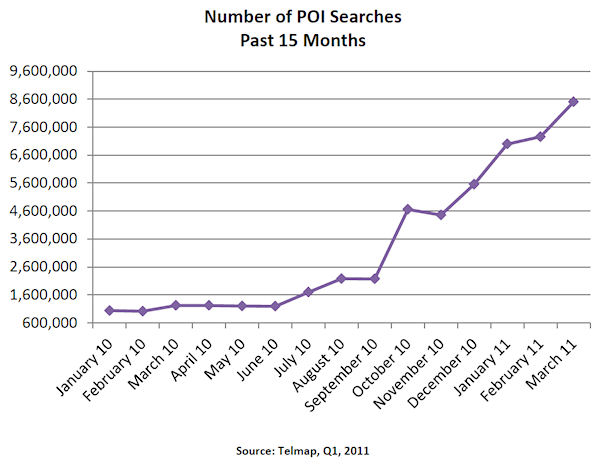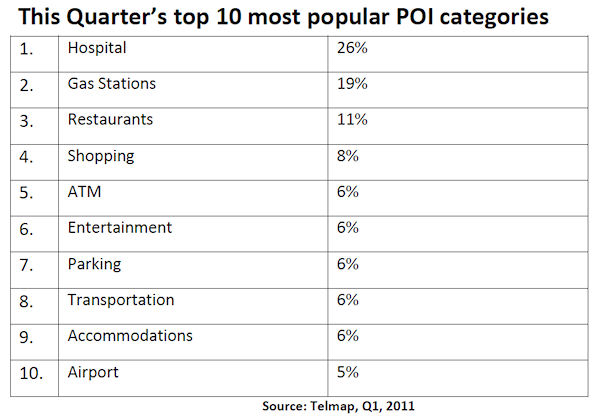I suspect I'm at the militant end of concern over commercial abuse of privacy.
Deleted
Consumers to date have very little experience with LBS in the context of customer service. So, it is not bad experiences, but rather pervasive concerns about privacy driving the mindsets of UK consumers who feel their location data may be misused by businesses. To create a sense of trust, businesses must become much more transparent on how the data will be put to use, and show customers some demonstrable value when using LBS for customer care.
The problem, at least as far as I'm concerned, is that almost all companies are guilty of using the data they already have for commercial exploitation, without express permission from consumers. They have demonstrated, in many cases, time and again, that they will do whatever they can get away with, even if they get away with it by hiding the fact that they're doing it in the first place. And there are companies that explicitly ignore instructions to
not use certain methods., For instance, I recently got a phone call from the AA with an “offer”, and I got it by telephone. The AA are one of the few companies I deal with that actually have that number, and they have been told, several times, that it is for admin purposes
only and that I do not, under any circumstances, want telesales calls. It took four repeats of the question about whether it was a sales call before the operator actually admitted it “was, sort of”. There's no sort of about it. Either he's ringing with an administration issue, or he's trying to get me to sign up for something new. It was the latter.
As it happens, I knew about what he tried to offer me already and it wasn't a bad option and I was, and I stress
was thinking about it anyway. I never got as far as letting him tell me what the deal was. It may have included a discount. It may have saved me money. The thing is …. I
don't care. I don't want telesales calls at home, about anything, from anybody, ever. Period.
My AA card shows a join date of (and continuous membership since) 1964. And they
know my wishes about sales calls at home. And yet
still they do it. And this idiot on the phone persisted in trying to sell me stuff despite that, until I told him that I would continue with the call but if it turned out he wanted me to sign up for some extra service, then that 47 year membership would not become 48 years, because I would not renew, ever again.
Each to his/her own, of course, but I am not interested in location-based services if there is
anychance that companies are tracking my location, and frankly, I simply do not believe that many of them can be trusted to not do it when told not to. For that same reason, I don't use store reward cards, and by refusing to do so, I know I lose out on the “discounts” you get for “loyalty”. Is it hell “loyalty”, it's a bribe to get commercially useful data use in data mining of data warehouses to profile us and sell us stuff. I also pay by cash virtually all the time, and I'm very cynical about why companies want to see tech like e-wallets …. not only does it no doubt cut their cash-handing problems and costs, but it adds trackability.
I don't particularly want adverts at all, even on TV. There, though, they are unavoidable …. but deletable. ;)
I certainly don't want to be pestered either at home or on my mobile by advertisers, and that includes texts. I do not
ever want to be pestered on my mobile by “location-based” adverts, and I don't believe that if commercial entities have a way of knowing where I am that they will pay any more respect to my explicit wish to be left the hell alone that the idiot on the phone from the AA did.
In short, they
cannot be trusted. My experience tells me that too many companies, too many times, have proven this by their actions and as a direct result, I don't trust any of them.
The only way to avoid, as far as is possible, getting pestered on the phone is to stop companies getting your phone number in the first place, and the same applies to location data.
As I said, I'm on the militant end of not trusting major companies. I'll happily forego offers, discounts and deals, all in the name of being left the hell alone by these pests. I don't expect that to be a common viewpoint, at least when it comes to giving up “free” money, but it's why I don't want to even risk companies tracking my location. It's none of their damn business where I go, or went in the past, or where I am at any given point in time. And the best way to not be location-tracked is not to have anything that can both identify my location, and report it back. Hence, a dumb cellphone and a SatNav with no cellular feature. And long may it stay that way.















